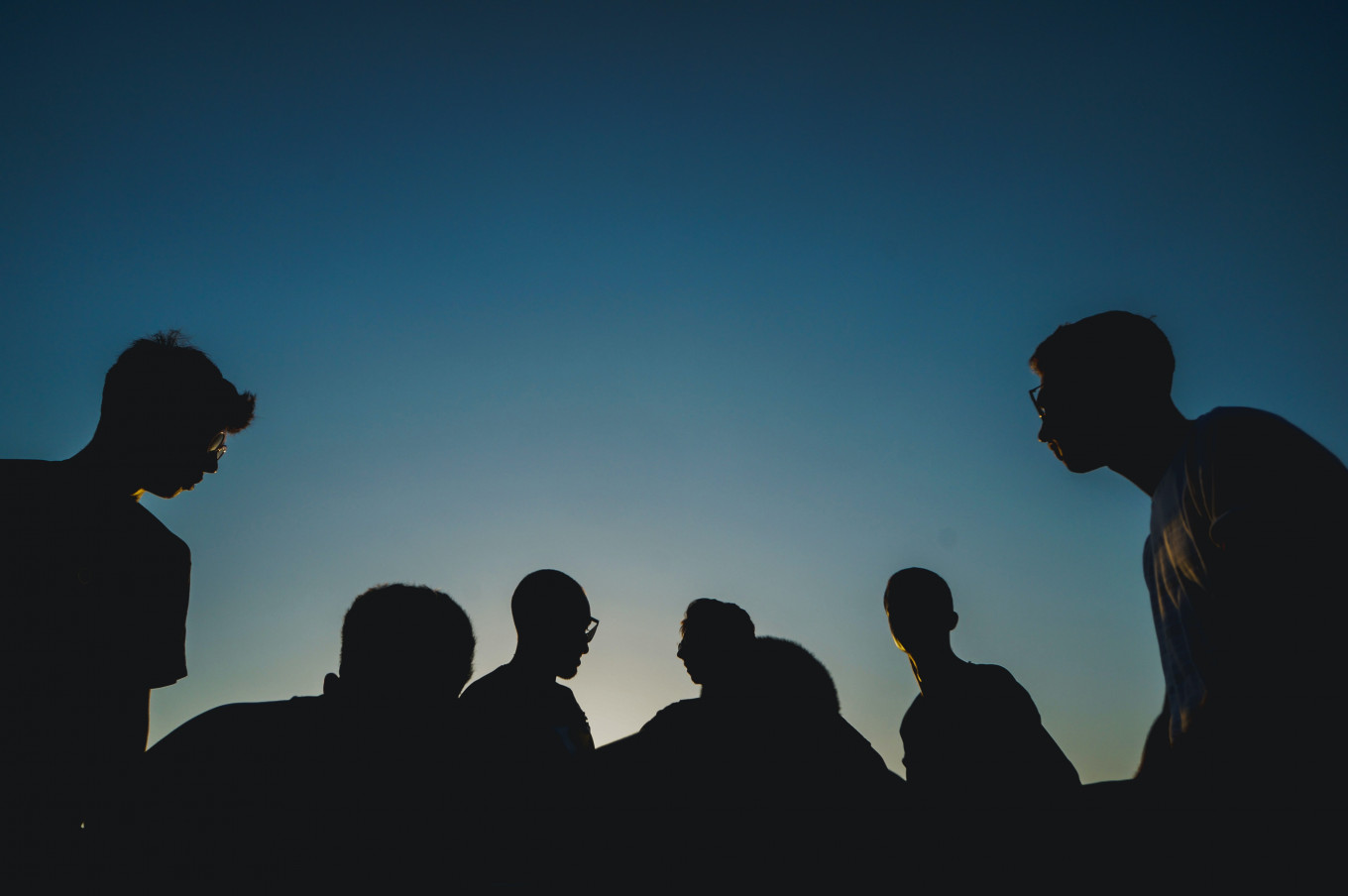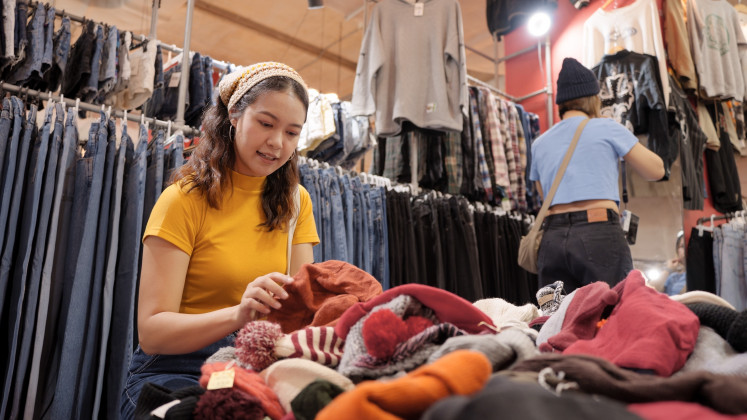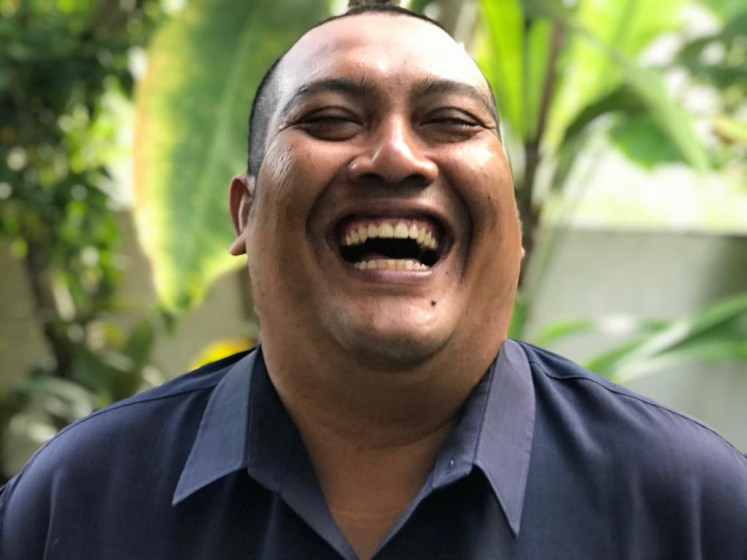Popular Reads
Top Results
Can't find what you're looking for?
View all search resultsPopular Reads
Top Results
Can't find what you're looking for?
View all search resultsHow the pandemic forced drug addicts to recover, together
Change text size
Gift Premium Articles
to Anyone
The COVID-19 pandemic has made it additionally difficult for recovering drug addicts to recover and not relapse
Rian entered the living room – his eyes fell on his 18-month-old daughter who was sitting on the sofa chewing on something. It was one afternoon in March 2014 and Rian had not slept for days after having binged on crystal meth, marijuana and Happy Five pills, which are meant to problems including medicate anxiety and muscle spasms but are often abused for recreational purposes.
As his brain finally registered what item his daughter was nibbling on, horror struck him. It was a cigar case where he stored a stash of cannabis. At once, Rian grabbed the container off his daughter. He took it as a wake-up call.
“[That was] crazy – even for me,” the 44-year-old Jakarta-based father of two told The Jakarta Post.
Rian, who has asked to use a pseudonym to protect his family’s privacy, said that on another occasion, his wife went ballistic after finding yet another stash of weed in their car.
“[She] was about to use the car when she found it,” he said.
Having used drugs since 1992, Rian acknowledged that his past, with emotionally unavailable parents who often beat him as a child, had driven him to drugs and eventually, addiction. Marijuana became his gateway drug – but soon enough other drugs followed.
“I never felt that I was good enough,” he added, reflecting on his past.
Years went by and Rian became engulfed in his addiction to the point of juggling two – sometimes three – jobs just so he could buy drugs. Despite having more than one source of income, he still owed money to his drug dealer. His relationship with his wife also became strained.
It was the scene where his daughter took the marijuana container that started “the domino effect” of an epiphany. One night, he started thinking long and hard about his two children – now an 11-year-old boy and a 9-year-old girl.
“I can’t bear [the idea] of having to explain to them should I ever get caught by the police and sent to prison,” he said.
The day after - on May 7, 2014 - Rian drove himself to a rehabilitation center and checked himself in. He spent two weeks there and afterward immediately joined the 12-step program Narcotics Anonymous. There, Rian found other people who, as he put it, “are happy without the use of drugs” – he has been clean ever since.
“I stuck around and here I am until today,” he said.
Separately, 30-year-old Dina, a mother of one also based in Jakarta, said that she hit rock bottom back in 2018. Having binged on various drugs from cocaine, ecstasy pills, marijuana to benzodiazepine for months, Dina – who also asked to use a pseudonym to protect her anonymity - was caught by the police one night, together with her drug dealer.
“I had some cocaine in my possession at the time – a very serious crime in Indonesia. As I sobered up at the police headquarters, I started looking at my life – my choices. I have a son [who at the time was] still a baby. It clicked with me: what am I doing with my life?” she recalled, adding that she was experiencing seizures and that the experience traumatized her.
“Thankfully, I wasn’t jailed – I was able to be bailed out.”
The authorities later ordered Dina to enter a rehabilitation center - Dina’s mother told her to go to a facility in Thailand, to be away from Jakarta.
After spending months in rehab – as well as joining 12-step programs, Dina was finally able to find recovery from her drug addiction. She returned to Jakarta in late 2018 and continued her recovery, including seeing a therapist regularly. Even until now some of Dina’s friends still use drugs and drink alcohol but she does not judge them.
“I [am the one] who has the disease [of addiction] – my friends probably don’t have it. So I’m the one who has to do the extra work,” she said.
Pandemic challenge
Twelve-step programs involve regular meetings between members to support each other in recovery – but as the COVID-19 pandemic hit globally early last year, physical meetings were not possible. At the same time, reports show that rates of drug addiction globally have gone up - mainly from recovering addicts who have relapsed as a result of financial and social pressure caused by the pandemic.
Edward, 31, who currently resides in Bali for recovery- admitted that he relapsed five months ago before returning to recovery.
“I got out of rehab and wanted to do drugs again,” he said. “As soon as I left rehab all I wanted was just some relief.”
Edward added that he would not be clean had the pandemic not happened. For him, it gave him “a window of opportunity to be clean.”
“[Because] the world is in a paused mode,” said Edward, who preferred to use his first name only for this article.
‘Silver lining’
Dina acknowledged that she was initially scared of relapsing due to the pandemic – mainly because of the lack of physical meetings. Before all of the social restrictions, she usually attended two or three in-person meetings per week.
“As the pandemic came – all meetings [moved] online. The first few months were tough,” Dina said, adding that she had also broken up from a long-distance relationship because of the pandemic.
“There’s a feeling of loneliness – because, with the pandemic, we all have to be connected digitally only.”
Dina immersed herself in the 12-step program even further – attending meetings and other recovery programs. She acknowledged that the online meetings allowed her to attend not only meetings in her hometown – but also in other cities and even countries.
“But I can be a bit paranoid if there’s no internet and I can’t go to a meeting or connect with people,” she said.
Separately, Rian admitted that the pandemic led many recovering drug addicts to feel alone, which could become overwhelming. Rian joined a meeting in Atlanta, Georgia, the United States, via Zoom early last year as physical meetings in Jakarta became unavailable.
“I need my support system – I cannot explain my disease to my family. They don’t understand,” he said.
Rian has witnessed more and more people attending 12-step program meetings online.
“On a daily basis, I see 50 to 60 people in one online meeting. [Meetings] are now just one click away and they’re available every day all over the world,” he said.
“[I’m not saying that] it’s easier for everybody during this pandemic. I know it is a hard time for all of us. I [merely] see the silver lining,” Rian added.
In these times, recovering addicts have also been turning their lives around through service. As part of Movement of Recovery - an organization set up to help recovering addicts - in collaboration with Crisis Kitchen Bali, teams of recovering addicts have been distributing food across Bali.
The efforts of these people serve two purposes - giving back to communities and helping them maintain sobriety by being of service.
Surviving, together: Wayan Bimbim, 40, co-founder of Movement of Recovery (Wayan Bimbim) (Personal collection/Courtesy of Wayan Bimbim)Wayan Bimbim, co-founder of Movement of Recovery, stressed the need for community, now more than ever:
“It is by maintaining unity that we get through tough times. This applies not only to addicts, but to everyone. Together we can.”
With additional reporting by Gilly Valentine in Ubud, Bali












